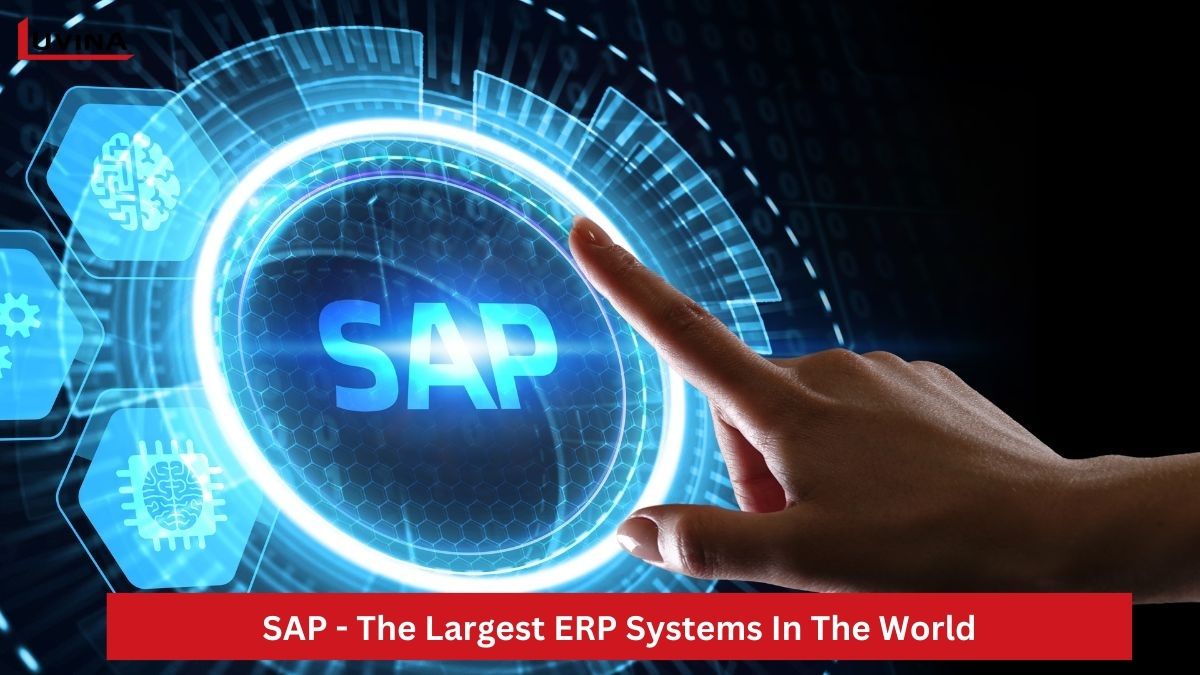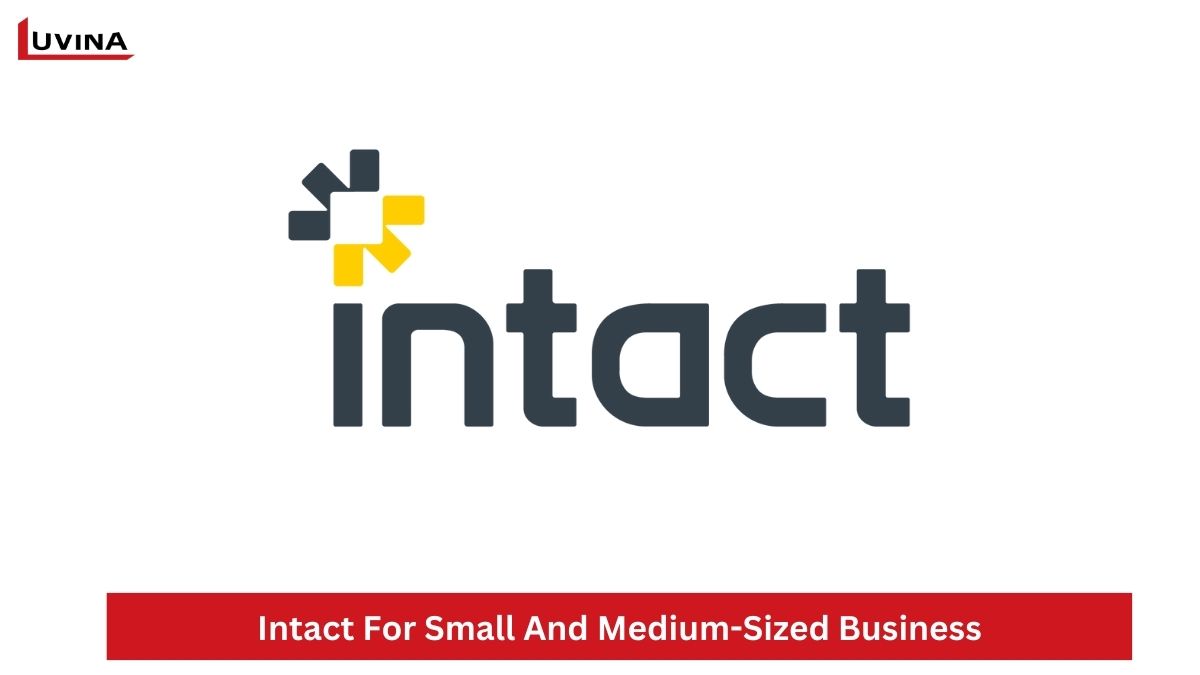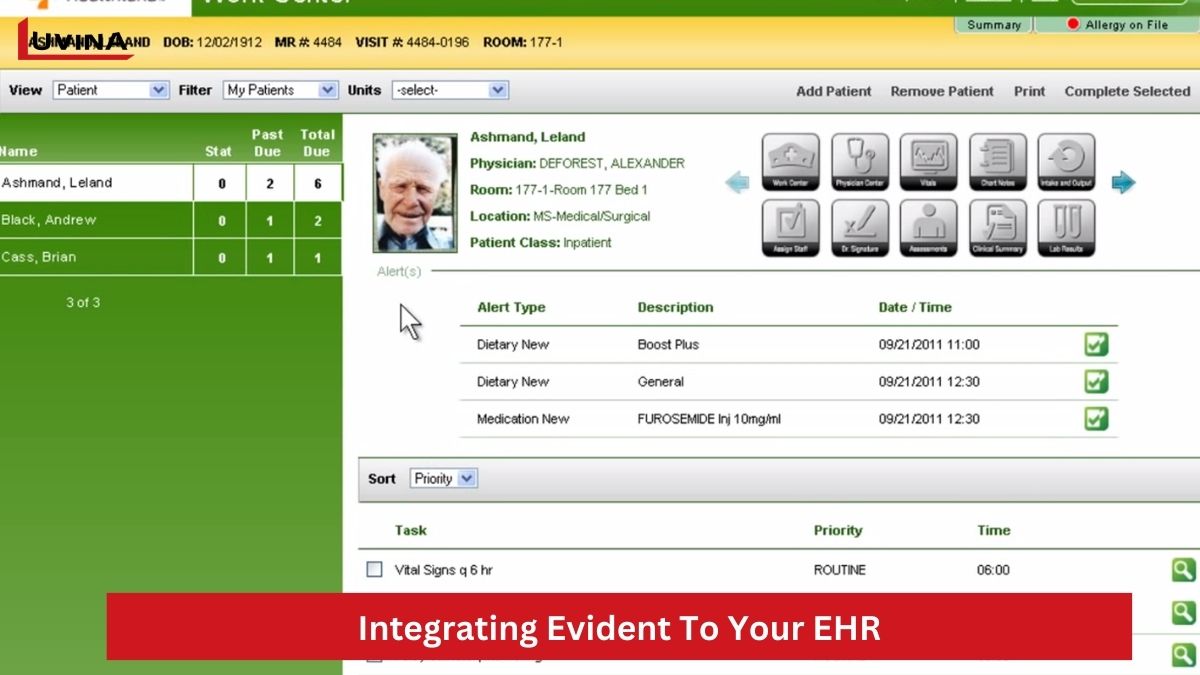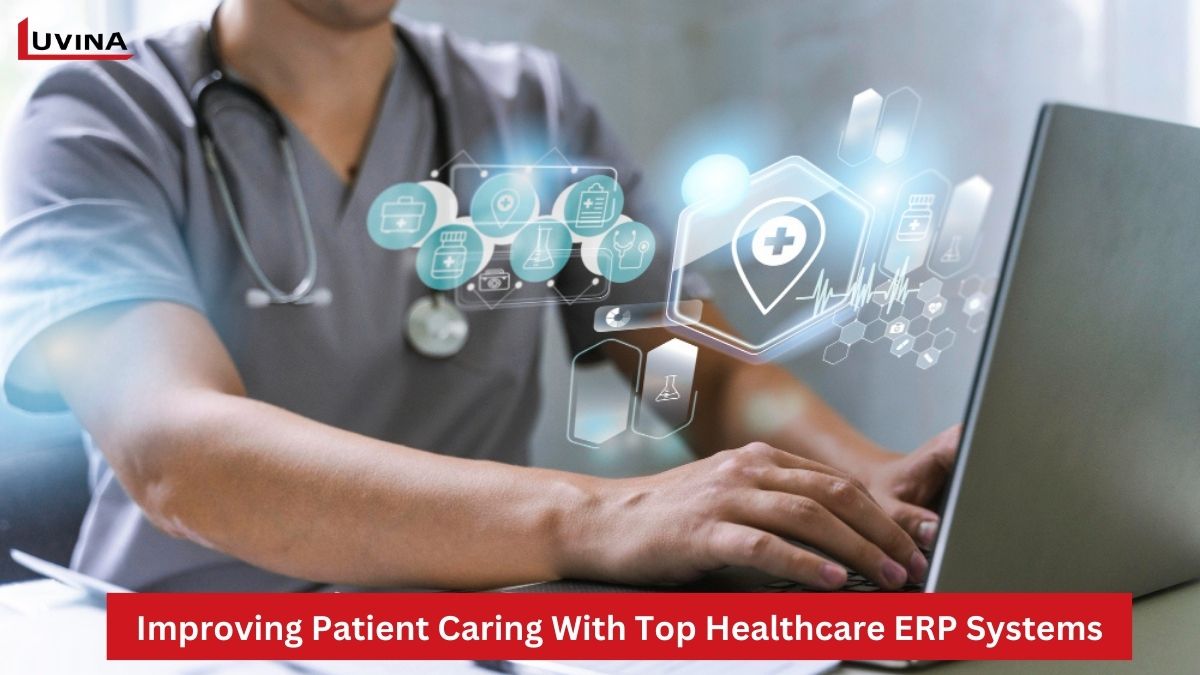Frequent overload is why healthcare organizations should use top healthcare ERP systems. These systems can integrate all aspects of a healthcare organization’s operations, such as financial management, customer care, administration, and risk management. Top healthcare ERP systems help manage a large amount of information and enable organizations to make smart business decisions continuously.
In this article, let’s explore 9 top ERP systems for healthcare and discover the benefits they bring to healthcare professionals and organizations.
Top Healthcare ERP Systems
To meet the need for optimized operations in healthcare companies and organizations, many top ERP systems for healthcare have been developed. Among them, the 9 top healthcare ERP systems are highly rated for their outstanding features and the benefits they offer.
1. SAP
SAP is one of the largest ERP systems in the world, offering the S/4HANA software suitable for all industries, including healthcare. This system includes many specific features for the healthcare sector, such as financial management, human resources, analytics, and data management.

These capabilities help healthcare companies improve patient experiences, get around resource limitations, and provide healthcare workers with the tools they need to use technology more effectively in their jobs.
While SAP can be complex and challenging to implement, it remains one of the best healthcare ERP systems you can use.
2. Microsoft Dynamics 365
Microsoft has become more involved with cloud healthcare in recent years. The fact that Microsoft Dynamics 365 currently has a number of healthcare-specific functions, including finance, sales, operations, and service, is proof of this. Large or expanding enterprises now rate Microsoft Dynamics 365 as the finest ERP software for the healthcare industry.
With Microsoft Dynamics 365, healthcare professionals can provide the best experience for patients. The platform optimizes care coordination, helps organizations make informed decisions based on data, and attracts new patients with targeted marketing campaigns. Additionally, it automates processes within healthcare organizations to improve operations.
3. Meditech
Meditech is one of the top ERP systems for healthcare, providing an integrated ERP solution suitable for organizations of all sizes. This platform features a user-friendly interface with costs that are evaluated to be quite affordable. Meditech’s ERP solution operates on the organization’s EHR platform to support managing reimbursements and payments, reducing supply chain costs, measuring financial performance, and more.
4. eClinicalWorks
eClinicalWorks is among the top healthcare ERP providers, delivering cloud-based solutions with a strong focus on electronic health records (EHR), practice management, and revenue cycle management. The platform integrates financial management, supply chain management, HR, and patient engagement into one streamlined system.
Healthcare organizations can achieve better patient outcomes using eClinicalWorks. The platform’s features help automate processes to optimize revenue, increase staff productivity, and improve clinical workflows. Many large healthcare organizations currently rely on eClinicalWorks to manage operations effectively.
5. NetSuite
The greatest ERP software for healthcare companies trying to expand, scale, and fast adjust to market changes is NetSuite. Healthcare professionals and companies may benefit from NetSuite’s capabilities, which include financial management, resource planning, and supplier relationship management (SRM). These tools can assist expedite operations and reporting, maintain compliance, and enhance customer experience.
6. Intact
Intact, with its ERP solution, Intact iQ, is one of the top healthcare ERP systems for small and medium-sized businesses. In the healthcare sector, this software primarily supports the management of pharmaceuticals and medical supplies. Intact’s features enable tracking of shipments, traceability, and many other tasks. By using Intact, healthcare organizations can monitor all aspects of their business from a single platform.

7. Cerner
Cerner provides one of the most widely used ERP and EHR solutions in healthcare, with a focus on improving clinical efficiency, patient engagement, and operational workflows. The platform offers financial management, supply chain optimization, population health management, and care coordination tools.
Cerner is designed to help healthcare organizations streamline operations, reduce costs, and enhance patient care. With its robust ecosystem and global presence, Cerner is trusted by hospitals and healthcare networks worldwide.
8. Evident
Evident is part of the EHR support suite of CPSI, specializing in providing financial management and revenue tools for community and rural healthcare organizations. Evident helps manage patient information, supports investment decision-making, and provides real-time financial reporting.

9. Epic
Epic is one of the leading ERP and EHR platforms in healthcare, trusted by some of the largest healthcare organizations globally. It provides a comprehensive suite of tools, including financial management, HR, clinical data integration, and patient engagement.
Epic helps healthcare organizations automate workflows, improve care coordination, and provide seamless patient experiences. The platform also supports analytics and predictive insights, helping providers make data-driven decisions.
Epic is currently used by many top healthcare systems such as Mayo Clinic, Cleveland Clinic, Johns Hopkins, and others.
Benefits of An ERP System in Healthcare
Implementing top healthcare ERP systems can bring many benefits to businesses and organizations in the healthcare sector. These include:
- – Improving the quality of patient care processes, and enhancing patient satisfaction.
- – Automating administrative tasks to focus more on core activities (patient care).
- – Streamlining financial management, reducing costs, and increasing revenue and profitability.
- – Enhancing reporting and analysis capabilities.
- – Strengthening security and compliance, minimizing potential legal issues.
- – Enhancing collaboration between departments.
- – Improving data management and storage capabilities.

>> Also read: Healthcare IT Outsourcing: Services, Benefits, and Partner Selection
Conclusion
Above are the 9 top healthcare ERP systems that can help your healthcare business overcome challenges and difficulties during growth periods. With the support of these top ERP systems for healthcare, not only will operational efficiency at healthcare facilities improve, but healthcare professionals will also be empowered to make informed decisions.
Your task is to choose the best ERP software for healthcare that meets your needs. If you find it difficult to choose, feel free to contact Luvina for assistance.
Luvina has extensive experience in building ERP systems, including both entirely new systems and adjustments to existing systems through custom integrations. We are delighted to support healthcare businesses in optimizing data security and care processes. With experience working with leading ERP platforms such as GrandIT, Dynamicax, SAP, Oracle, and Workday Solution, Luvina commits to providing healthcare software development solutions that best fit your needs, no matter what specific healthcare service niche you operate in.
Contact Luvina’s consulting experts for specialized advice tailored to your company!
Related Posts:









Read More From Us?
Sign up for our newsletter
Read More From Us?
Sign up for our newsletter